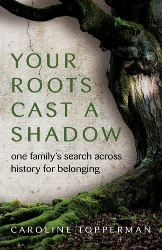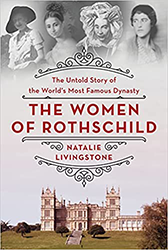As the grandson of a hero of the Minsk Ghetto, the son of an activist in Communist-era Poland, and a foreign correspondent reporting from Jerusalem, French journalist Piotr Smolar is uniquely positioned to write about Jewish realities spanning decades, political ideologies, and continents. By titling his book Bad Jew, Smolar suggests that he, his father, and his grandfather are “traitors” to Judaism, each in their own way. His grandfather, Hersch, was a socialist, convinced in his youth that “Communism would resolve the Jewish question.” Piotr’s father, Aleksander, became a Polish patriot, and let his Jewish identity fade as he rallied for a homeland that would eventually reject him. Smolar’s own betrayal, he says, stems from his having put journalism and its demands at the center of his life. He insists in his introduction that he has “always avoided any summons to appear before [his] own to submit to a loyalty test.” And yet the question of whether he is “Jewish enough” runs through the book. Smolar poses it directly and indirectly to a wide range of interviewees, and their answers are disparate, fascinating, and at times very blunt: “You are the most ignorant Jew I know,” one Israeli journalist tells him.
Stylistically, Bad Jew draws on a number of fields, including ethnography, political analysis, and Holocaust history. Smolar admits early on that as a journalist, he’s loath to become the subject of his own work. This may have something to do with why any connections between the various sections are drawn with a very light hand. His own subjectivity is the link between the rich tidbits that make up this book.
The most contemporary and urgent of Smolar’s storylines is his account of reporting from the Middle East in the years leading up to October 7. Strangers who’ve read his articles in Le Monde have written him furious, middle-of-the-night emails like “Your ancestors must be turning in their graves” and “Your gut loathing for Jews confirms the old saying that Poles suckle antisemitism in their mothers’ milk.” Even his parents wonder if he’s being fair to Israel in his reporting. Smolar tries to explain that what motivates him is a concern not only for Palestinian lives, but also for Israel’s very soul. Israel, Smolar fears, has lost its bearings; the values on which the country was founded have been compromised.
While Smolar avoids facile conclusions, he does offer, in the penultimate chapter of the book, a moving suggestion as to where one may find purpose and belonging as a Jew — especially if one’s life, like Smolar’s, has no religious dimension. In a conversation with Tamar Elad-Appelbaum, an Israeli rabbi, he asks if she considers him a Jew. The rabbi responds, “We both ask the same questions. For me those questions are what being a Jew is all about.” Through his friendship with the rabbi, Piotr comes to understand that the demands of Judaism and journalism are one in the same: rigorous ethical questioning, openness of mind, willingness to listen, and being “a stubborn dreamer for the community of mankind.”
Basia Winograd, a New York City – based writer and filmmaker, teaches creative writing at Hunter College. She was awarded a grant from the Memorial Foundation for Jewish Culture for her novel in progress.





